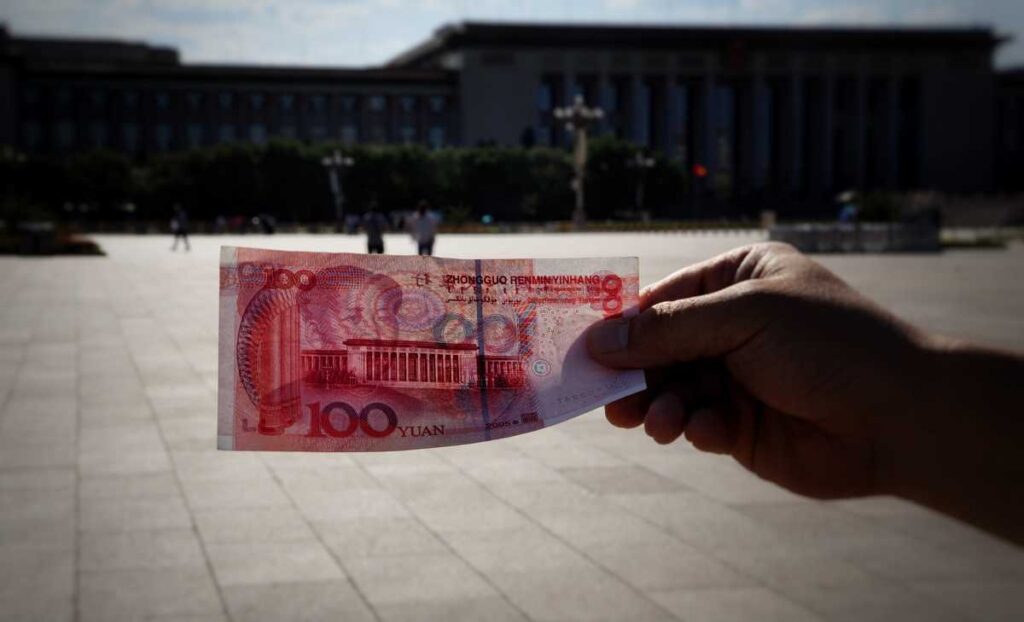
China was a traditional rival, but as the world’s most populous country and largest economy, these challenges have been exacerbated. Its massive size and growth, combined with its status as an economic superpower, have made closer examination necessary. You can create an account to have a robust algorithm that performs the research for bitcoin traders and makes trading easy.
Also, it has helped many beginners to get started with bitcoin trading. Furthermore, the international digital yuan is expected to allow goods and services to be traded in different currencies based on supply and demand.
China has shocked other nations by launching the digital yuan – China’s first official digital currency. The Chinese government believes that the “yuan” will perfectly live up to what it is meant for: facilitating trade across borders and evolving into the global standard for payment systems. According to the Bank, this newly launched digital currency will be used as a transaction and settlement tool. The goal is to create a system that allows commercial banks, payment companies, and other financial institutions to transfer money quickly and efficiently.
China’s digital yuan will also help facilitate direct trades between parties without going through third-party clearing agents, which could cut costs and increase efficiency, particularly for SMEs (small and medium enterprises).
Embracing blockchain in china:
In China, blockchain technology is fully embraced by the country’s government. Blockchain can be used as a payment platform to speed up and facilitate international transactions, especially for small and medium enterprises facing problems like high fees and long transaction processing times. Therefore, this will further reduce transaction costs and increase efficiency in the financial sector.
Global demand for digital currencies continues to grow as new business models emerge. As a result, it is driving a new round of competition between international blockchain players to develop solutions that can effectively serve China’s domestic market. Given its size, China is critical in this effort to create a truly global digital currency standard and the ecosystem around it – including supporting regulation, technology standards, and consumer adoption.
Despite efforts made by other countries to issue their digital currencies (e. g., Saudi Arabia and the United Arab Emirates), the Chinese government remains confident that its national digital currency will meet specific standards set forth by other currencies for everyday use cases.
Digital Yuan was not a spontaneous move:
The Chinese government has been working on this project for a long time, and it is clear that China wants to create a global standard for digital currencies. People made this move because of the country’s economic rivalry with the United States, which uses the dollar as its “reserve currency” for international financial transactions. For example, China is currently exploring the possibility of issuing its non-renminbi (RMB) digital currency controlled by blockchain technology instead of giving its yuan-denominated RMB.
How has the digital yuan helped china gain a competitive advantage?
Digital currency offers enormous advantages for China. Digital currencies also provide a way for Chinese companies to store their funds outside mainland China, allowing them to conduct cross-border transactions immediately. The fact that digital currency is intrinsically linked to blockchain technology and thus has the potential to reduce costs and transact quickly can only increase its appeal among Chinese businesses and consumers.
Chinese businesses can communicate globally easily:
Digital currency’s role as an e-commerce facilitator can also make Chinese companies more competitive in the global marketplace. The ability to conduct financial transactions in any currency without exchanging physical currency, along with the reduced cost and latency times, could help Chinese companies reach new markets and retain control over their data.
Digital Yuan will promote international trade:
According to the Bank of China, digital currency can also help promote international trade by allowing trade transactions to be settled directly between buyer and seller without requiring third-party payments. It is beneficial for SMEs, which tend to lack deeper pockets, to pay hefty fees from clearing agents settling transactions on their behalf.
Digital Yuan offers a new option for investors and traders to buy and sell digital currency. The volatility of the Chinese stock market means that many investors remain wary about putting their funds into the mainland. Digital currency gives them access to international markets without being concerned about exchange rates.
Digital yuan can also make transactions more efficient:
These tangible benefits have prompted China’s government to make the digital yuan a permanent fixture in its economic affairs. Moreover, this new “digital currency” will give China an advantage over other countries as it will continue to use its domestic currency as legal tender when conducting financial transactions within China.
The current system of cross-border transactions is costly and inefficient, with banks getting involved in most domestic and international transactions. However, with digital currency settling trades directly between counterparties bypassing banks and other intermediaries that charge high fees, China can save billions on transaction costs.
Chinese citizens will also benefit as they can send money abroad without incurring high charges. According to a May 2013 study from the Boston Consulting Group, this cost savings could be up to 40 per cent for some market segments like travellers remitting money domestically.


